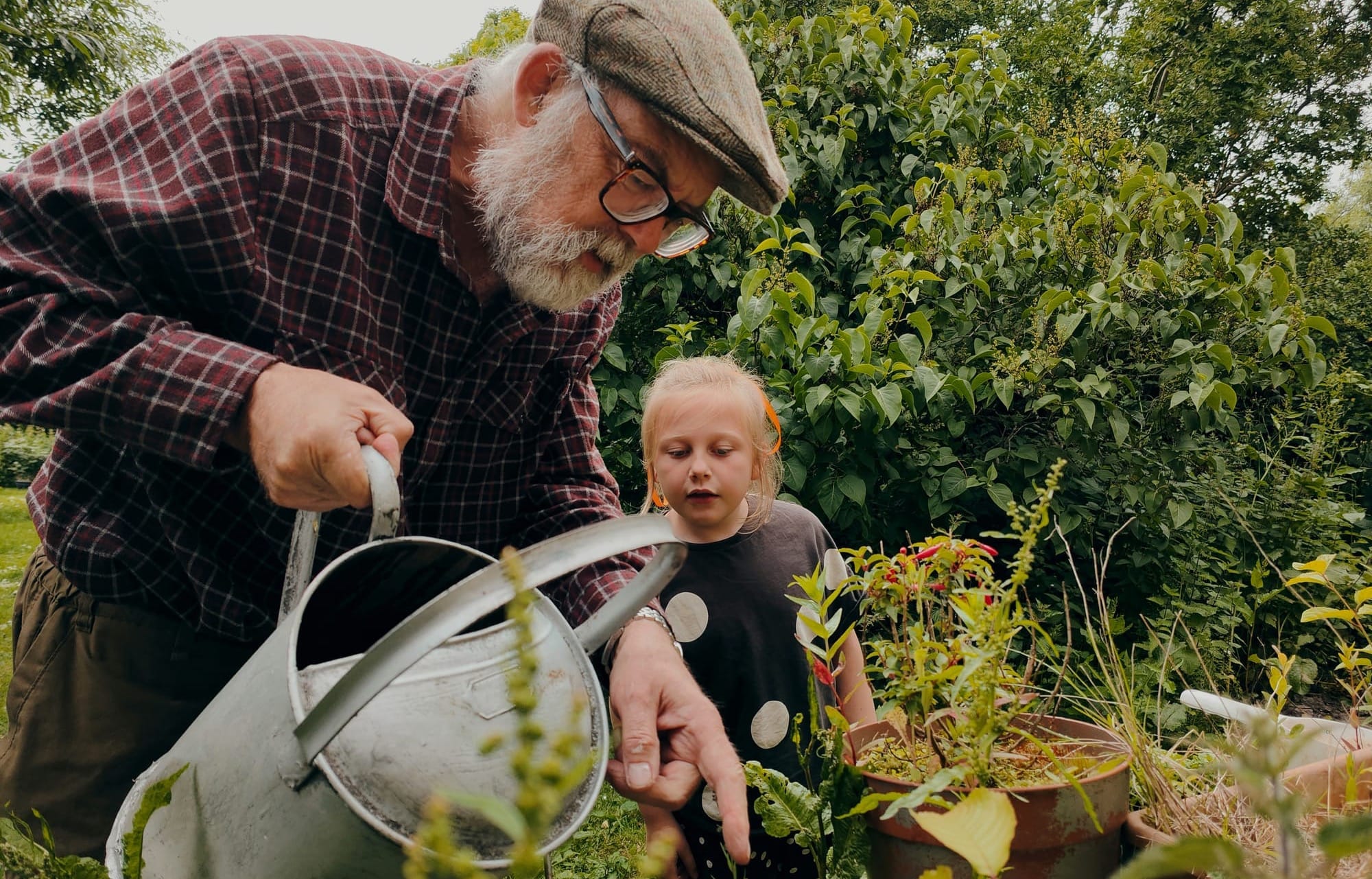Thoughts: Learning to Grandparent

Here I am, writing this blog about caring for grandchildren, but in the odd position that many aspects of caring for kids don’t come naturally to me. My strengths, at least according to a HIGH5 strengths test, are not in caregiving, but in things like focusing, strategizing, thinking and learning—maybe what you’d expect from an ex-philosophy professor?
Maybe you’re in a similar situation—you’re thinking about spending more time with your grandchildren, but you worry that you’re not cut out for it, or that you’re out of practice, or that you don’t have as much energy or patience as you once did, or even that you didn’t do that great a job with your own kids. If concerns like that are holding you back, but at the same time you feel an urge to develop a relationship with the grandkids, or just want to be useful to the family, maybe it’s time to start practicing—because like any complex skill, grandparenting can be learned.
For me, a good step in learning to grandparent has been to orient myself to the idea that grandparenting is a form of caregiving—or, shorter, a way of caring. This orientation is helpful because—as pointed out by ethicist of care Eva Feder Kittay—“caring” has three aspects, each of which is important for grandparenting.
Learning to care
First, caring is an attitude or emotion—a little emotional pull or expectation for yourself that caring is a good or right thing to do. If you’ve got that little voice saying “spend more time with your grandkids,” you already have at least the minimum attitude needed to start practicing your grandparenting. Of course, it’s helpful if your caring attitudes or love for the child are stronger (as mine were), but you can start as if you were a childcare professional, who can be competent even without a strong bond with a child.
Second, caring is a set of labor and skills. When you care for someone—even yourself—you need some set of skills—cooking, bathing, toileting, entertaining, teaching, learning, comforting, and many others. At some point you learned all those skills, so learning to apply them to grandchildren, or to learn new skills you need (like patience, or focused attention, or playing Monopoly), just takes practice. (This story of a young nurse’s starttoward excellent caregiving is a beautiful example.)
A usage like “they are a caring person” illustrates the third aspect of the word: Caring is a disposition—a personal tendency or sort of default setting—to care for others in an ongoing way. Someone with a disposition to care tends to notice others’ need for care, has caring attitudes and emotions at hand, and usually puts their skills to use when care is needed.
Notice that the disposition, skills, and attitudes interact: You’re more likely to bother learning the skills and doing the labor if you have the attitude or emotion egging you on to do it; you’re even more likely do the work of caring if you have the disposition. But—and this is the most important part—you are more likely to develop the disposition if you practice the labor and skills, and open yourself to the attitude or emotion. If you try a little playtime with the child and the child laughs, or holds your hand, or you enjoy a game together—suddenly, you have a little more attachment, an added skill, and a bit of growth towards a grandparenting disposition.

To learn grandparenting, do it
The idea that you can develop your own disposition goes at least back to Aristotle, the ancient Greek philosopher. He put this in terms of developing virtues, like courage or gentleness: To be courageous, you have to practice courage; to be gentle, practice gentleness. He also pointed out that knowing how to exhibit or practice virtues takes wisdom—you need wisdom to know the difference between courageousness and foolhardiness, or between kindness and being a pushover. But wisdom, too, is developed by practice—and grandparents generally have a leg up in developing wisdom because they have lived longer and through more experiences than younger people. Again, the main point is that one isn’t just good or not good at grandparenting—as with any skill, it’s easier for some than others, but most grandparents can learn how to do it.
Still, there are at least two big reasons not to take on more grandparenting: One is your health—when you are sick you have to take care of yourself, or be taken care of, rather than caring for others. The other is if you really don’t want to be around kids—if that’s the case, you won’t have that minimal attitude of caring, and the interaction isn’t likely to go well. (It’s a different and complicated subject if for some reason your adult children don’t want you involved with the grandchildren—that topic I won’t deal with here.)
Blogging to learn
Writing this blog, working through problems or puzzles about grandparenting that I run into—or, as the blog develops, that others run into—is one way I improve my grandparenting skills. I hope what I come up with here can help you as you increase yours!